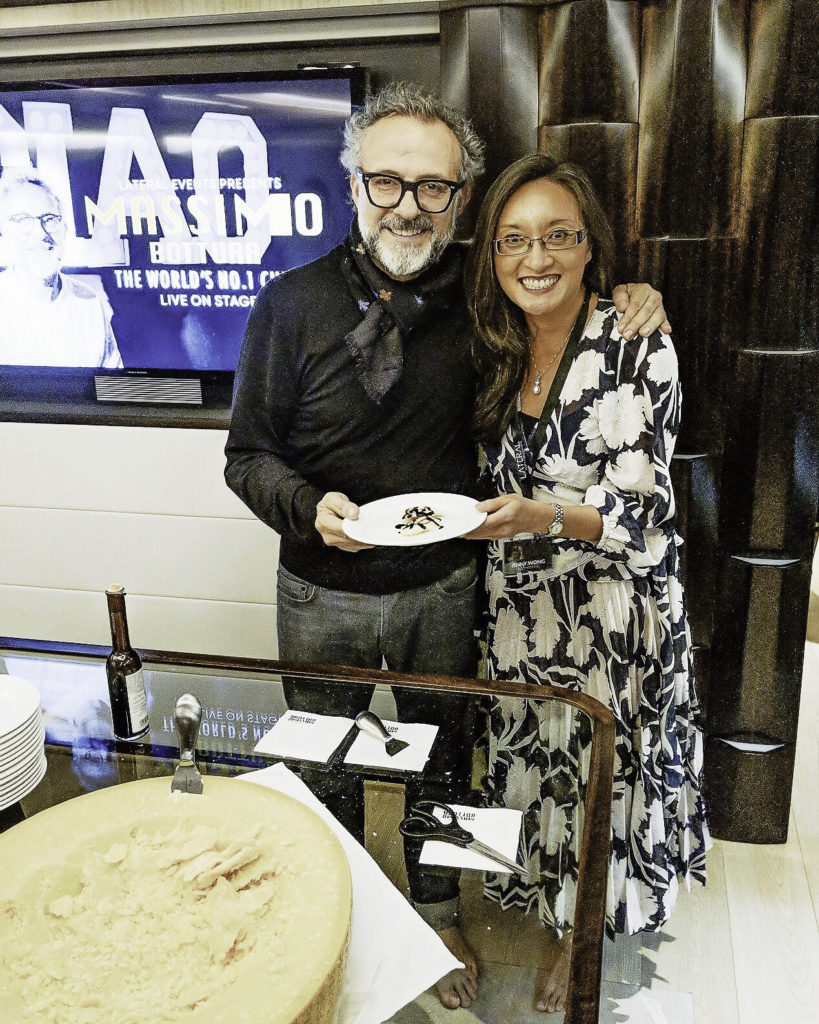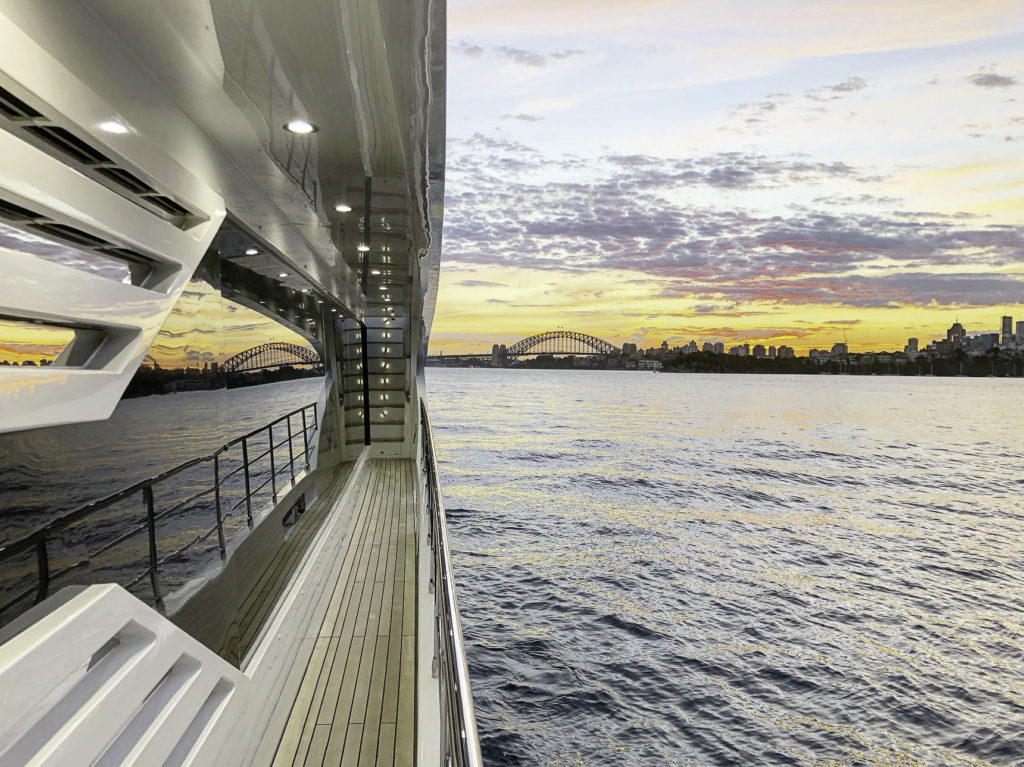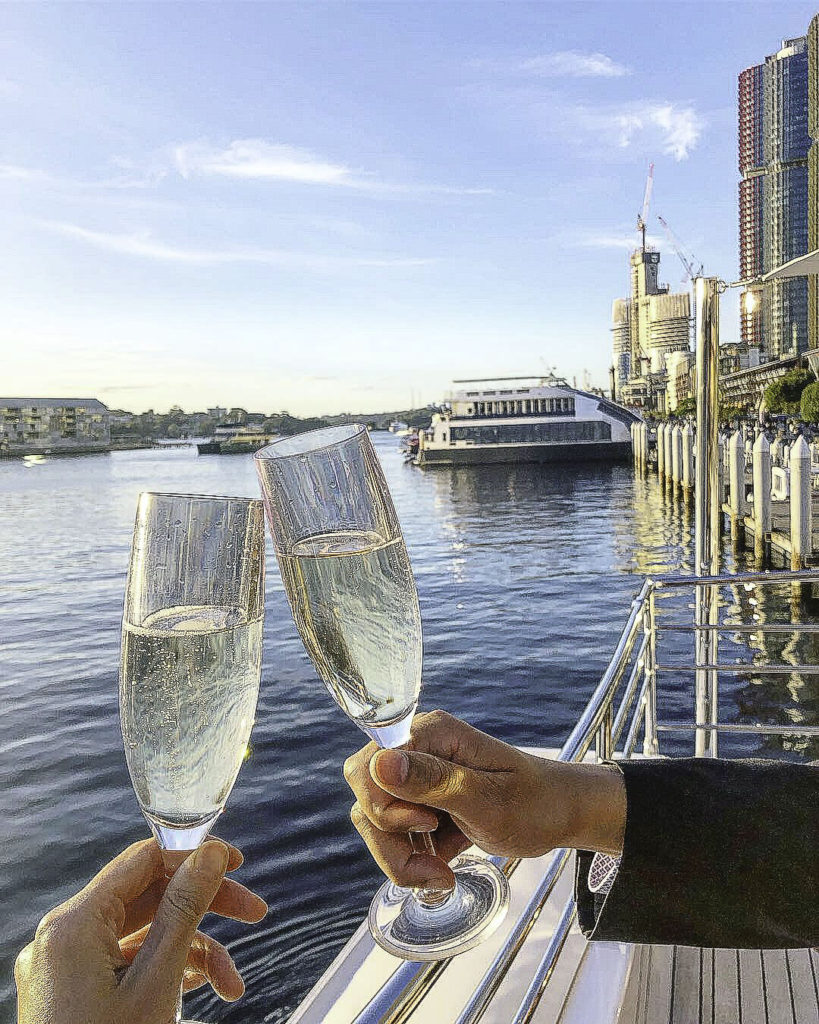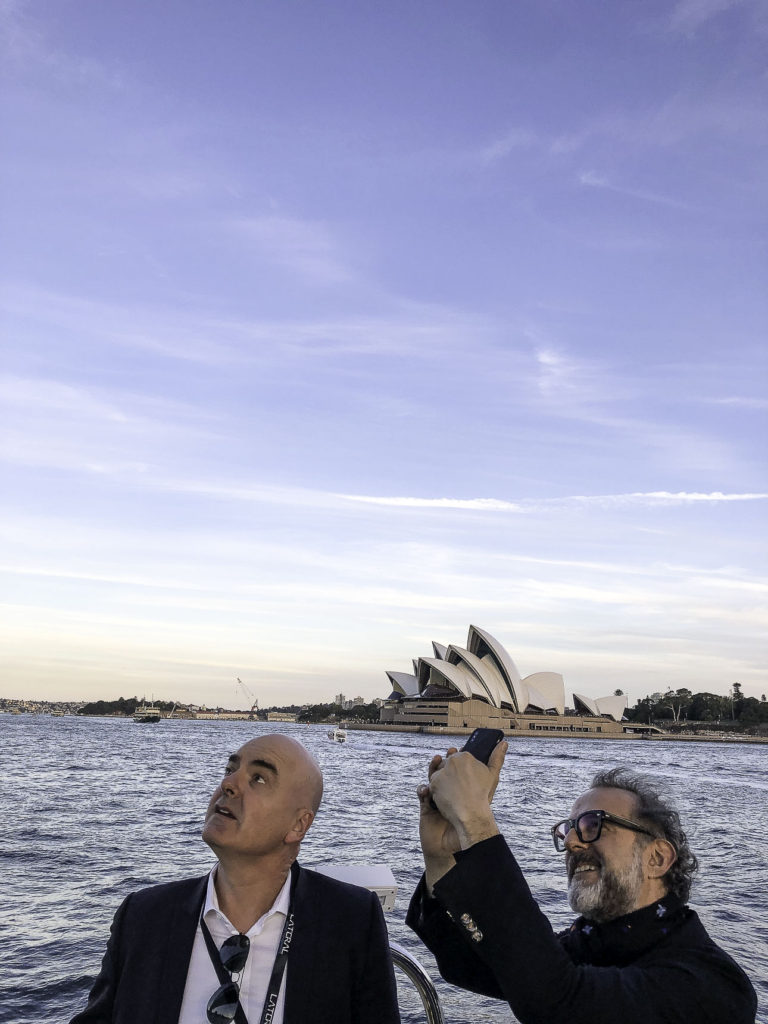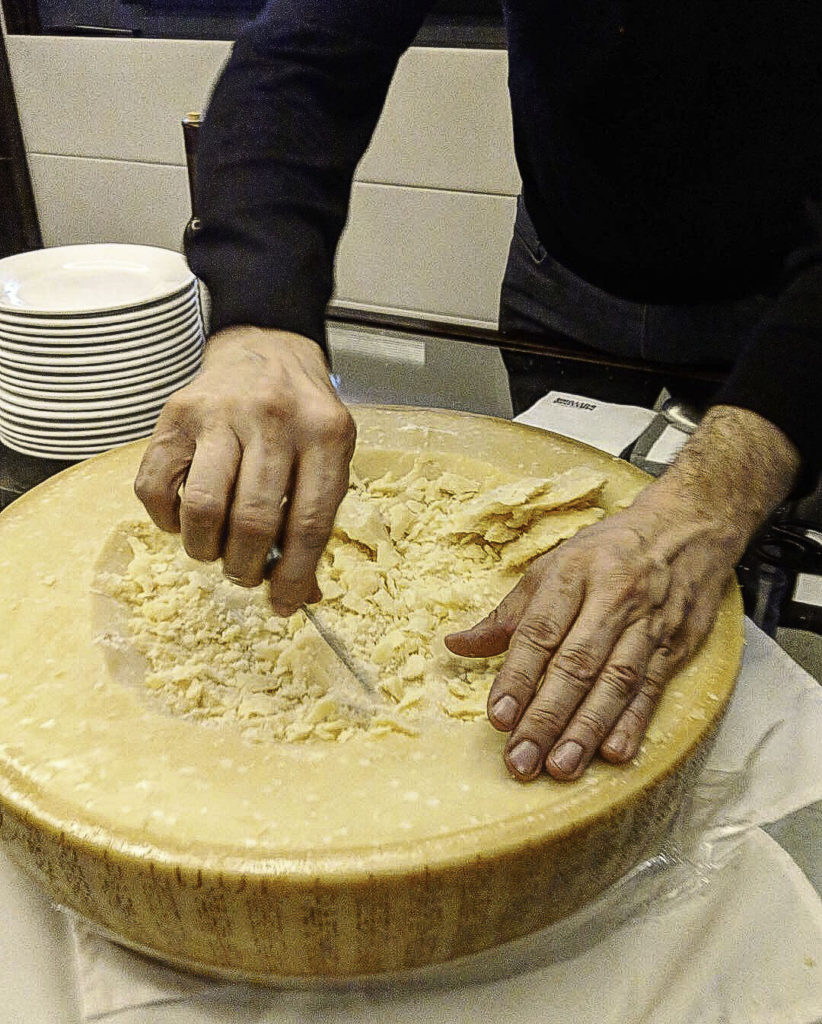I was curious to see how long I would have to wait if I wanted to reserve a table at the world’s No.1 restaurant, Osteria Francescana in Modena, Italy according to The World’s 50 Best Restaurants rankings. I went online to check. I was 819 on the list to wait for a table booking. “That’s not too bad”, Massimo Bottura, the Italian chef and creative mind behind Osteria Francescana, tells me. But, I was lucky and it was quicker for me to meet Bottura on board a superyacht in Sydney Harbour two weeks ago. Bottura was in Sydney to launch his new live public show in collaboration with Lateral Events to be toured in theatres across Australia in August 2019, which is promised to be not only a food talk but an intellectual entertainment with a sense of responsibility.
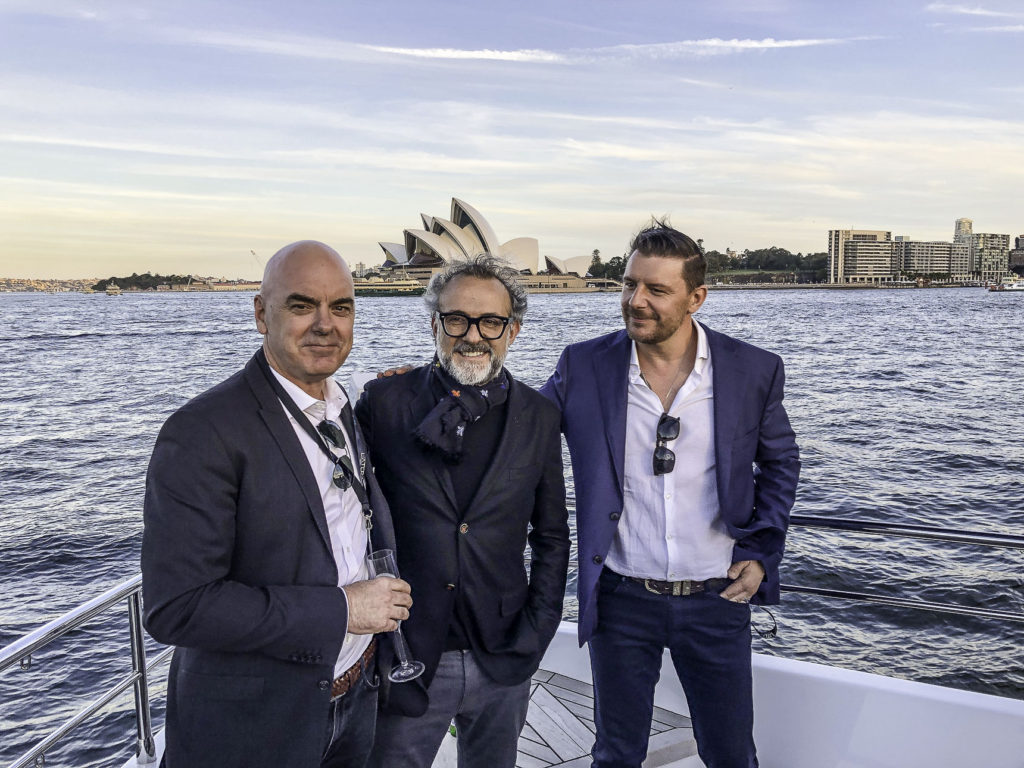
I didn’t know what to expect from the man who created the World’s No.1 restaurant when I met him, but there is one thing I learnt: when Massimo Bottura speaks, people listen and it’s not only because of his status on the culinary world stage. It’s because what he has to say is considered, humble, eloquent, thoughtful, and will leave you pondering over it a bit more. Put down your camera, sit and just listen. I nodded as I listened, and immediately warmed to him.
Bottura is an artist and has chosen food as his medium. He is inspired by music, art, food, centuries of history of Italian cuisine and compressing all of this into edible bites. We started our conversation about the crunchy bits of lasagne. “Ahh, yes …. Do you know what that’s about? Have you seen the recent New York Times clip?” Bottura asked me. When you watch the clip, the robot at the end leaves you with a cryptic: “How does it make you feel?” A dish he created that heroes the crunchy corner bits of the lasagne conjures his childhood memories where he fought with his brothers over the crunchy bits when his nonna served lasagne hot out of the oven and onto the table. Bottura’s food is about evoking emotions.
In a discussion with Australian television presenter Ray Martin on the superyacht we were on, he asked Bottura, “How do you become the world’s No.1 chef?” Bottura responded reflectively, “Become influential” and citing examples of Rene Redzepi of Noma restaurant as an example of someone influential because he invented Nordic cuisine. Bottura said, “For me, I think about my past in critical way and not nostalgic one and taking the best into the future.”
“What do you put on your passport – chef or revolutionary?” Ray Martin asked. “Actually cook” Bottura replies. “As a revolutionary you upset tradition. I’m not revolutionary. As a revolutionary you break something and everything changes. For me it’s different … I look at past, and I have deep roots, in flavour and centuries of tradition of amazing flavours” and he would look at it with that lense and “steal the crunchy part of lasagne and handmade pasta” and modernise it. “You don’t have to break it, but let it evolve,” Massimo says. “This is art …. I get flavours that are familiar to me and feed people with emotion. People don’t come to my restaurant for a big pan of lasagne. People come to see the expertise of the mind of a chef.”
On his family, Bottura said, “My father saw me get my 3 Michelin stars. I promised that when gave up law school. My father was very upset with me. I came from small town where education was considered very important, where people thought you’re nobody without degree. I walked into his office and said, I will get 3 Michelin stars. In November 2011, I got the 3 Michelin stars and in the following March my father past away so he saw I achieved that. He was proud … but we never went back to what it was before.”
When I asked him about his thoughts on the future of fresh produce, Bottura said that people will be growing more of their own organic, biodynamic, seasonal produce but acknowledges that where he is from in Italy this can be easily done. With the rise of mass production, more people are becoming conscious of food waste and indeed, the largest wastage of food occurs in the family home. “France and Italy have legislation against food wastage,” he tells me. In Brazil, imperfect produce are unfortunately burnt and wasted in truck loads according to Bottura.
Bottura’s latest venture is progressing his non-profit association Food for Soul to empower communities to fight food waste and social isolation, with thoughtfully designed community kitchens called Refettorio. Bottura has them set up in Milan, Rio de Janeiro, London and Paris and is planning to start one in Australia in collaboration with OzHarvest. Refettorio comes from the Latin reficere, meaning ‘to re-make’, and also ‘to restore’. Refettorios are hubs for social inclusion, enriched with art and beauty, where the whole community can gather, be empowered and inspired. It is good to see this initiative given that one-third of the food we produce is thrown away and over 800 million people are undernourished.
“Chefs today are influencers, and therefore they have a responsibility to help their communities grow and become more sustainable. Part of this growth is the fight against food waste and hunger,” says Bottura. “It’s time for us to go outside our kitchens and listen to our communities, to give back what we have learned in years of hard work, sacrifice, but also satisfactions and rewards. We chefs are as responsible as everyone else to make the difference, and we have to do it now. Not tomorrow, not within a couple of months. Cooking is a call to act”.
If you want to hear more from Massimo Bottura live on stage, you can got to Lateral Events website for more details.
See.Taste.Do was a guest of IP Publicity and Lateral Events to meet Massimo Bottura in Sydney, Australia
